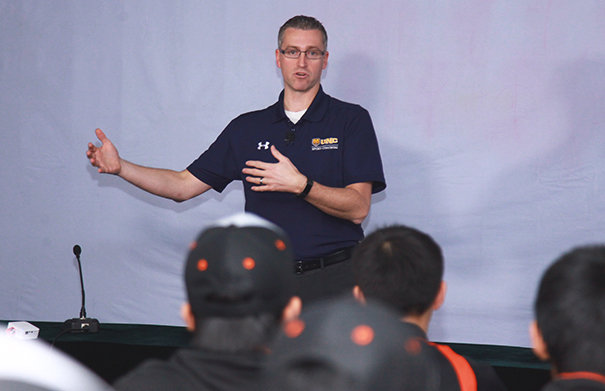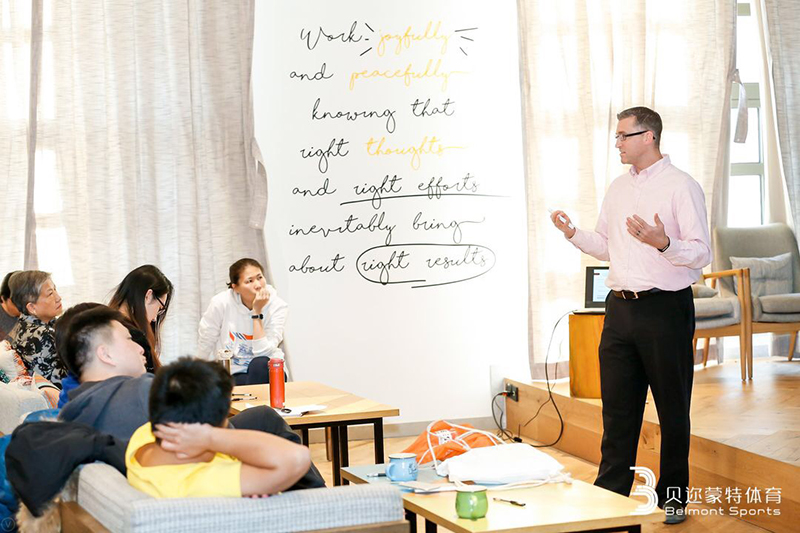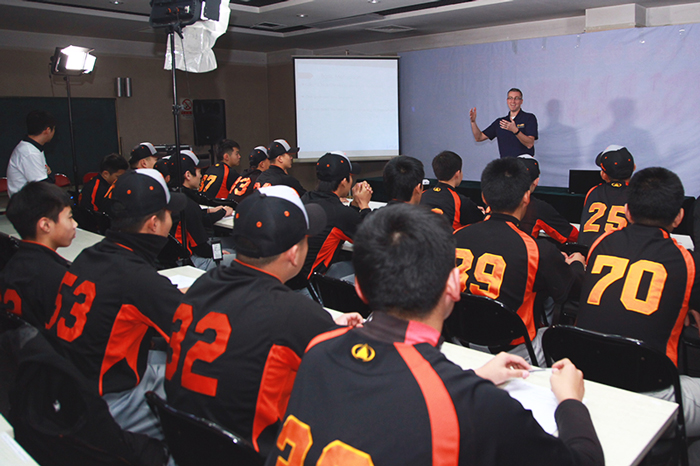
Brett Nichols, Ph.D., UNC instructor of Sport and Exercise Science, spent two weeks of December 2018 in Beijing, China, working with parents and youth athletes to highlight the importance of sport for youth.
 Nichols has refined a niche in international sport and sport development, and because
of his connections to organizations such as Beijing Belmont Sports, Beijing Sport
University and Positive Coaching Alliance, he traveled to China to share his expertise three times since 2016.
Nichols has refined a niche in international sport and sport development, and because
of his connections to organizations such as Beijing Belmont Sports, Beijing Sport
University and Positive Coaching Alliance, he traveled to China to share his expertise three times since 2016.
Nichols gave five presentations on his most recent trip:
Two presentations for parents on the positive impact of sports for their children and what they can do to keep their kids active. In this presentation, he shared the stage with former Chinese Olympians and experts from around Asia.
Above: Nichols presenting to parents about the positive impact of sports for their children
and what they can do to keep their kids active (photo courtesy of Beijing Belmont
Sports).
Three presentations for junior high and high school “professional” athletes on managing motivation and using tools in sport psychology to maximize their performance. One group was a baseball team that ranged in age from 15 to 18 years old and represented one of the top three high school baseball programs in the country; most of whom will go on to play professional baseball.
Above: Nichols presenting to a baseball team that ranged in age from 15 to 18 years old
and represented one of the top three high school baseball programs in the country
(photo courtesy of Beijing Belmont Sports)
“The structure of who plays sports and how and why they do it is very different [than the U.S.],” said Nichols. “China professionalizes athletes, and, as a result, they don’t have the recreational sport culture that we have.”
According to Nichols, China has an early selection process for kids chosen to become professional athletes, which can begin as early as at the age of four. Depending on the economic class, some selected children decline seeing success more attainable through academia while others excel. The children who accept the opportunity will go on to attend school three to four hours a day and then athletically train for as much as 10 to 12 hours a day.
“Being an Olympic athlete is the pinnacle in China, and my interpretation is that being a national hero is more important than making millions of dollars,” said Nichols. “These athletes aren't in it for themselves, they're in it for the pride of representing their country.”
The question then is, how can children who weren’t selected to become professional athletes keep active and play sports? Nichols is helping their parents understand the value of physical activity. For example, he encourages them to bring a frisbee to the park and have typical sporting equipment available around the home to normalize sport and activity.
Nichols will return to China this spring to teach and deliver more workshops.
Photo at top courtesy of Beijing Belmont Sports.
More Stories
-
Biological Sciences Master's Student Research Could Lead to Improvements in Liver Disease Outcomes
Este artículo no está en español.
-
Student’s Research Aims to Shed Light on Invisible Barriers
Este artículo no está en español.
-
Nursing Program Rises in U.S. News Rankings
Este artículo no está en español.
-
Born to help: A Career in Nursing
Nacido para ayudar: una carrera en enfermería







